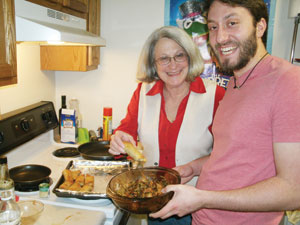Obama is bluffing on Iran
While Israel fears a new holocaust from a nuclear armed Iran, President Obama seems only to be worried about a preemptive attack on Iran or the talk of war raising oil prices and thereby harming the U.S. economy and his re-election campaign.
Despite his reassurances at the AIPAC conference that he “won’t hesitate to use force to prevent Iran from obtaining a nuclear weapon,” in reality, he is bluffing to woo Jewish voters and stop an Israeli unilateral attack on Iran.
Less than two days after his AIPAC campaign speech, Obama had already begun backsliding from his commitment. When asked what he meant by his comments that “we have Israel’s back,” the president answered that “it was not a military doctrine that we were laying out for any particular military action.”
Israel should realize by now that Obama will never attack Iran or support an Israeli attack before the election because such a war in the oil-rich region would send gasoline prices even higher than they are now, exacerbating the economy he perceives to be recovering and hurting his chance for re-election.
The price of gasoline has been rising daily over the last month due to the sanctions and tensions over Iran, averaging $3.79 a gallon. Since 1976 in the United States, there has been a correlation between rising oil prices and falling presidential approval ratings. Jimmy Carter lost the presidency when gas averaged $3.37 per gallon when adjusted to the current value of the dollar.
Not only is Obama warning against an attack but he has also been warning against any talk of an attack. In his AIPAC speech, Obama literally blamed high gas prices on his Republican critics and Israel’s supporters saying “Already, there is a loose talk of war. Over the last few weeks such a talk has only benefited the Iranian government by driving up the price of oil, which they depend on to fund their nuclear program. Now is not the time for bluster.”
Despite Obama taking credit in his AIPAC speech for the new “crippling” sanctions against Iran and asking the Israelis to wait a few months to allow them to take effect, in reality he has tried to weaken them. In December the Kirk-Menendez amendment, passed by a rare 100-0 vote in the Senate, directed the administration to take punitive measures against foreign entities that do business with Iran. However, the administration tried to pressure top ranking Democrats, thankfully to no avail, to delay the implementation of the sanctions by a few months arguing that such an amendment could raise oil prices and hurt the U.S. economy. Moreover, President Obama failed to begin enforcing the sanctions on Feb. 29 as the law intended.
The nightmare scenario for Barack Obama would be the revelation, in the midst of an improving economy during the next eight months, of an Iranian nuclear breakthrough forcing him to either act or back down and then be judged by the voters.
The only scenario under which Obama will attack Iran is if he believes he has a chance of losing the election because the economy deteriorates, unemployment rises and Romney, the Republican presidential candidate, is gaining in popularity. Two days after Bin Laden was killed in 2011, Obama’s job approval ratings rose by 9 percent to its highest level since 2009 despite the stagnant economy.
If he is re-elected, President Obama, in his second term, will not attack Iran even as a last resort. Not needing Jewish votes or re-election and true to his ideology of appeasement, he will re-adopt his “containment policy” of useless diplomacy and engagement policies, leading eventually to a nuclear armed Iran.
By then, the Middle East will be an explosive powder keg, waiting for the Iranian trigger. Israel’s only deterrence option to stop Iran from attacking would be the threat of retaliation through total annihilation by its nuclear weapons arsenal.
Watching Benjamin Netanyahu’s AIPAC speech, it seems clear that he realized after talking to Obama that Israel is alone in this fight. Israel’s only remaining hope is if Obama loses the election and the Republican candidate becomes president. The only time that the extremist Iranian leadership decided to suspend its nuclear program was in 2003, after the U.S. invaded Iraq, because it truly believed a Republican president’s warnings that they would be attacked next.
Shoula Romano Horing was born and raised in Israel. She is an attorney in Kansas City and a national speaker. Her blog: www.shoularomanohoring.com.



 “Mom, when can we change the kitchen over to being kosher?”
“Mom, when can we change the kitchen over to being kosher?” Several years ago, we saw the documentary, “The Case for Israel,” based on the Alan Dershowitz book. The film was produced by Gloria Z. Greenfield, president of Doc Emet Productions (founded in 2007) and Field Advocacy and Advancement Strategy Manager for the Partnership for Excellence in Jewish Education in the Greater Boston Area.
Several years ago, we saw the documentary, “The Case for Israel,” based on the Alan Dershowitz book. The film was produced by Gloria Z. Greenfield, president of Doc Emet Productions (founded in 2007) and Field Advocacy and Advancement Strategy Manager for the Partnership for Excellence in Jewish Education in the Greater Boston Area.